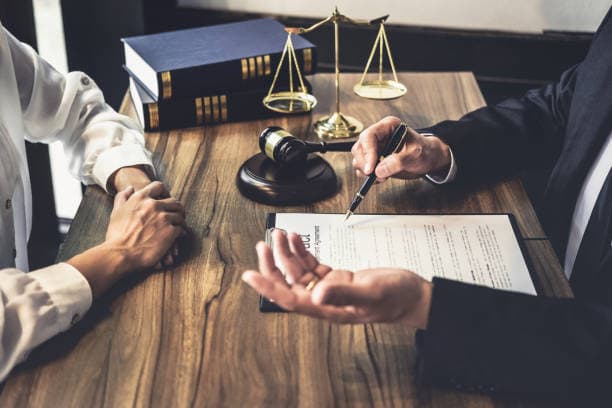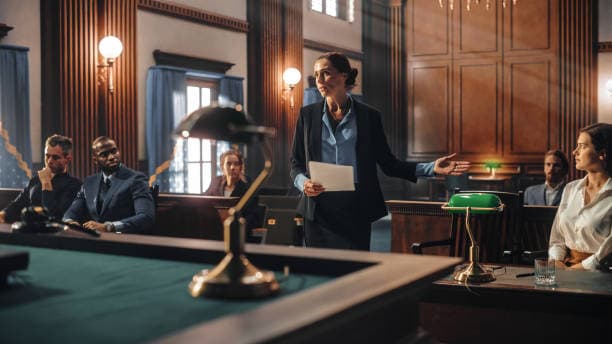Legal counsel is the initial stage in a legal encounter and is essential in developing a legal strategy and point of view. For those who are unfamiliar with it, this procedure may appear bewildering or even frightening. We’ll explain what goes on in a legal consultation in this post so you can go in as prepared as possible.
What is legal advice?
Legal consultation is an essential initial step that connects a client with legal issues or concerns with a knowledgeable attorney who can offer professional assistance. Upon examining the client’s specific case in detail and scrutinising all pertinent documents and circumstances, the attorney can assess the legal environment and identify potential risks and opportunities. This process not only gives the client the opportunity to present in detail all aspects of his case, but also to receive valuable advice on possible strategies of action, whether it is judicial protection, out-of-court settlement of the dispute or other legal mechanisms for the protection of his interests. Consequently, legal guidance turns into an essential first step in creating a successful action plan and strategy that addresses legal concerns and is customised to the particulars of every instance.
Preparing for counseling
Preparing for a legal consultation requires a careful approach and close attention to detail. This entails carefully compiling the required documentation and formulating the queries you wish to put to the lawyer. First, let us acquire the necessary paperwork. This step involves gathering all the documents that seem relevant to you and organising them so the lawyer can quickly assess your case. Any official paperwork, contracts, letters (including emails), financial and legal records, and any other things pertinent to the case are considered documents. It is also important to prepare a brief description of each document or group of documents to make it easier for the lawyer to understand what aspects they relate to.
In formulating your questions, it is worth focusing on the issues that are of most concern to you and that you want to discuss first. Try to be as clear and specific as possible to avoid any misunderstandings. Include in your list questions about possible strategies for resolving your case, timelines, and the estimated cost of legal services. Be sure to also ask about possible risks and how you can minimize them. By getting ready for your meeting with a lawyer, you will be able to ask all the questions you have and create the foundation for a successful case settlement.
The consultation process
The processes in the legal advising process are intricate and interconnected, ranging from meeting and discussing a case to formulating a plan of action for its resolution.
Meeting and discussing the case
The initial stage involves the client and attorney meeting in person, typically at the lawyer’s office, though video conferencing can also be used virtually. It is critical to have honest and open communication at this point. The client should give a thorough account of all the case’s circumstances, supply any relevant documentation, and respond candidly to the attorney’s inquiries. This is necessary so that the lawyer can understand the situation completely and identify any possible legal repercussions. In response, the lawyer pays close attention, provides clarification, and at this point, he or she is able to make general suggestions about how to handle the situation.
Legal analysis
Upon obtaining all pertinent data, the attorney delves further into the case study. At this stage, the lawyer studies the provided documents, analyzes the legislation and judicial practice related to the case. This analysis’s goals are to list all of the client’s rights and responsibilities, evaluate the case’s advantages and disadvantages, and pinpoint any potential dangers or opportunities. Since a successful resolution of the case depends on a proper assessment of the legal situation, this step demands a high level of expertise and experience.
Discussing the strategy
Based on the analysis, the lawyer develops a strategy for resolving the case, which is discussed with the client. In this discussion, various options may be proposed, including both in-court and out-of-court ways of resolving the dispute. The lawyer provides his recommendations on each option, explaining their advantages and disadvantages, as well as a preliminary assessment of the timeframe for resolving the case and possible costs. At this point, it’s critical that the client and the attorney agree on the next course of action, as the selected course of action will dictate how the case proceeds.

After counseling
After legal advice, there comes a time when you need to make important decisions about your next steps. This may be a decision whether to follow the lawyer’s recommendations, the need for additional consultations to get a broader view, or perhaps a decision not to take further legal action at this stage. This decision is primarily based on how complicated your case is, how you weigh the risks and opportunities, and how motivated you are to pursue specific legal actions.
If you decide to continue working with the chosen lawyer, the next step is to conclude a legal services agreement. This document is key to your interaction with the lawyer, as it sets the framework for your cooperation, including the obligations and expectations of both parties. The contract should clearly spell out:
- Description of services: A thorough explanation of the legal services to be rendered can help to prevent misunderstandings and provide you a clear idea of your lawyer’s area of expertise.
- Timeline: Establishing a specific time frame for each phase of the work will allow you to control the process and plan your actions.
- Cost of services: A transparent fee schedule, including hourly rates, fixed amounts and terms for additional costs, is the foundation of a trusting client-lawyer relationship.
- Responsibilities of the parties: A clear delineation of responsibilities, including what is required of you for the lawyer to work effectively, as well as what guarantees and support the lawyer provides, ensures effective and focused cooperation.
The phase of your case’s active legal help commences after the contract is signed. Throughout the procedure, you will need to work closely with the attorney; you won’t just be having consultations with them. In addition to preparing and submitting legal paperwork to the appropriate authorities, the attorney will be gathering the required evidence and negotiating with the other party. You will be able to engage in important choices about the case’s strategy and tactics, as well as receive frequent updates on how your case is doing. You’ll be able to protect your rights and interests and stay informed by doing this.
